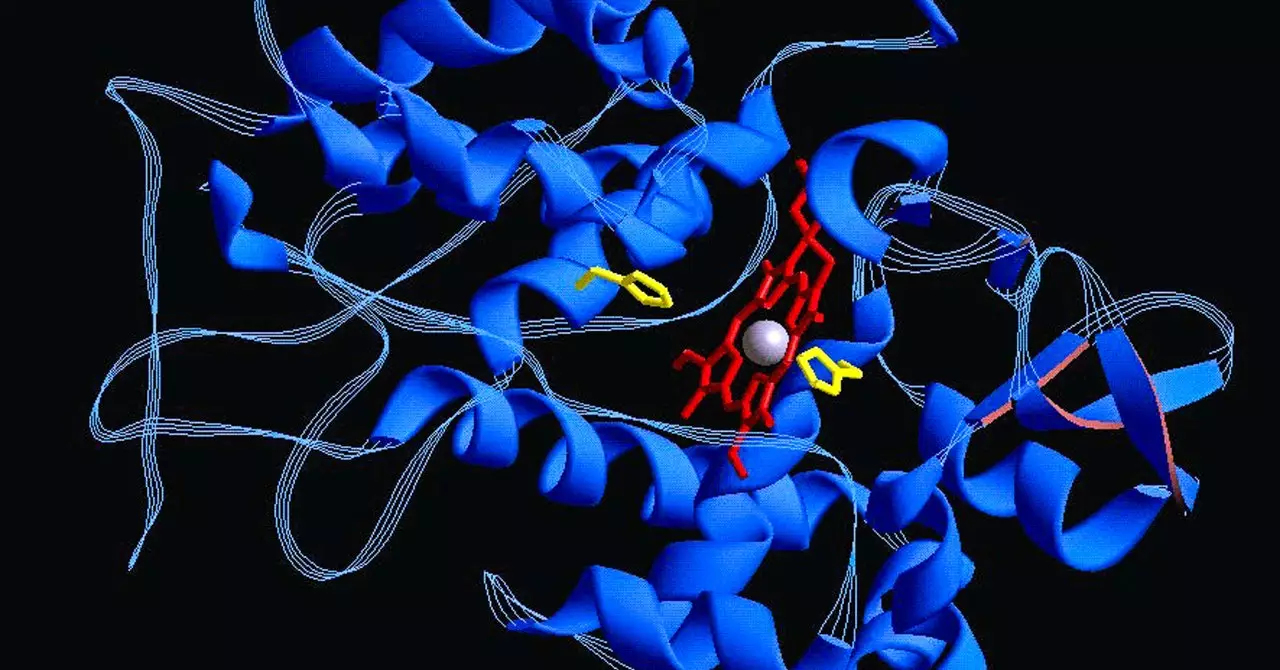In recent years, artificial intelligence (AI) has surged to the forefront of scientific inquiry and public interest. While this spike in popularity is promising, it has also raised concerns about how the scientific community perceives and employs AI technologies. One prominent voice in this discussion is Hodgkinson, who expresses trepidation that researchers may prioritize the method over the substance. This concern signals a larger issue within academia: the tendency to chase trends at the expense of genuine scientific insight and advancement.
The Hype Cycle: Lessons from the Past
The nature of scientific progress has frequently been characterized by cycles of hype and disappointment. Hodgkinson points to past technological trends, such as blockchain and graphene, to illustrate this phenomenon. Following the announcement of Nobel Prizes and significant breakthroughs in these fields, interest explodes, leading to an avalanche of publications. For instance, after the 2004 discovery of graphene, the number of related academic papers skyrocketed from 45,000 between 2005 and 2009 to over a million from 2015 to 2020. However, despite a massive fourfold increase in research output, the tangible impact of graphene on real-world applications has been modest, highlighting a disconnect between publication volume and meaningful advancements.
As Hodgkinson notes, AI research publications have tripled from 2010 to 2022, culminating in an astonishing quarter of a million new papers in 2022 alone. This relentless pursuit of knowledge, particularly after the introduction of generative AI models like ChatGPT, reflects both the allure of novelty and the potential for academic productivity. However, this rapid increase raises questions about the quality of scientific inquiry. Are researchers genuinely contributing to the understanding of AI, or are they merely regurgitating existing theories to fit a trending topic?
Julian Togelius, a computer science associate professor at NYU, voices his skepticism about the motivations driving academic pursuits in AI. He argues that scientists often gravitate towards subjects that promise the most visible gains, a tendency amplified by the prospect of accolades like the Nobel Prize. The potential for recognition can easily overshadow the need for rigorous investigation and theoretical innovation. This scenario poses significant risks: the entrenchment of low-quality research and a stifling of the bold, fundamental work required to make meaningful progress.
From Fundamentals to Quick Wins
Togelius highlights a troubling trend wherein researchers might favor simulations that rely on existing theories, leading to incremental rather than drastic advancements in knowledge. This approach minimizes the effort needed to explore complex problems or develop groundbreaking theories. While simulations can undoubtedly offer insights, they risk becoming a crutch for researchers who might otherwise engage in deep, challenging explorations. The allure of quick wins could lead to a homogenization of thought, constraining innovation to small “hops” rather than the leaps afforded by true scientific endeavors.
The current academic landscape presents a dichotomy: the overwhelming pressure to publish and compete for funding does not easily lend itself to innovative ideation. Researchers like Togelius acknowledge the temptation to simplify complex fields through superficial algorithmic interventions rather than immersing themselves in the intricate science behind them. This tendency breeds a culture where surface-level proficiency is prized over genuine understanding, threatening the advancement of science itself.
As we navigate the evolving field of AI research, it is imperative to balance the excitement of new technologies with a commitment to foundational science. The enthusiasm surrounding AI should serve as a catalyst for profound inquiry rather than a mere trend to chase. Researchers must prioritize a deep understanding of both the capabilities and limitations of AI, fostering a culture that values rigorous, innovative exploration over superficial compliance with the latest fads. In doing so, the scientific community can not only honor the substantial achievements recognized by awards but also ensure that the future of AI research is grounded in genuine discovery and meaningful advancement.

